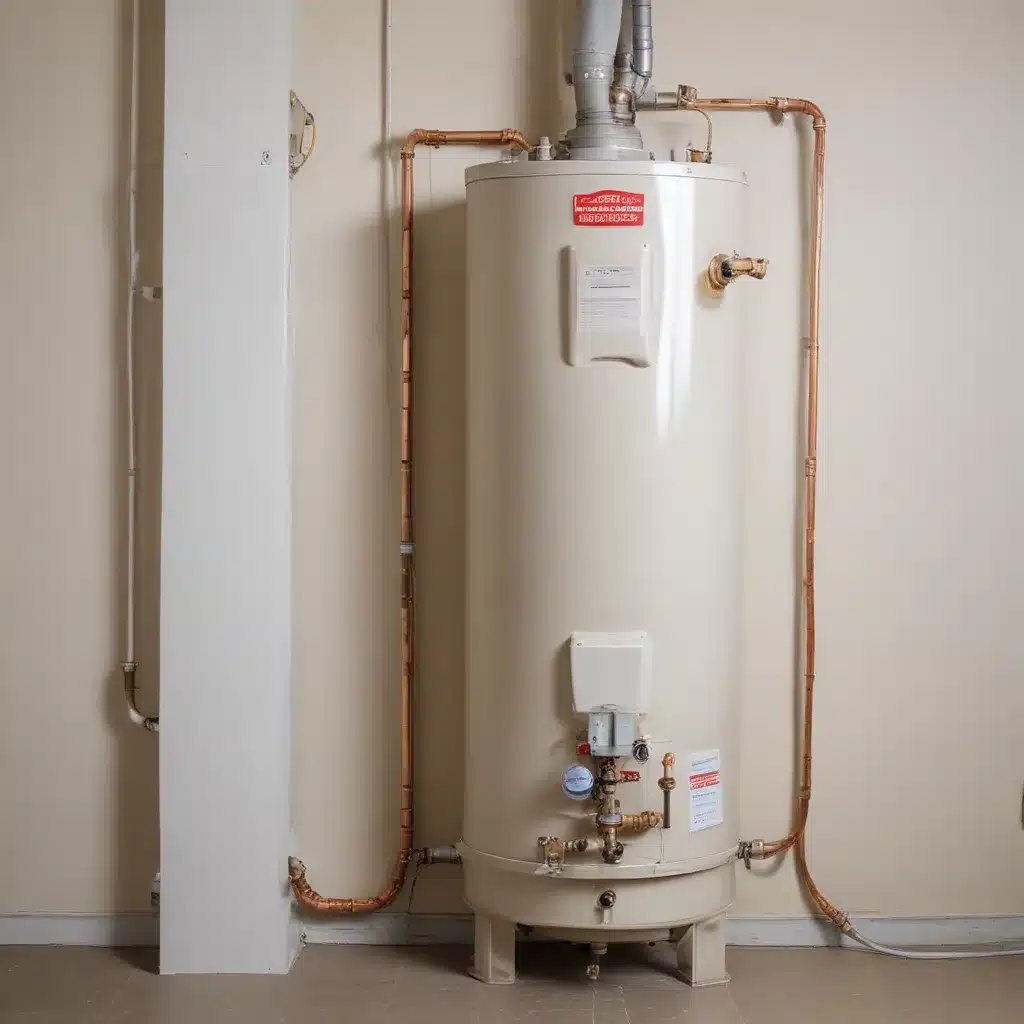
As an experienced water heater specialist, I understand the importance of maintaining your home’s water heating system for optimal performance and longevity. Over time, sediment and mineral buildup can wreak havoc on your water heater, reducing its efficiency, increasing energy consumption, and potentially leading to costly repairs or premature replacement.
Now, this might seem counterintuitive when dealing with water heaters…
In this comprehensive guide, we’ll explore proven techniques to prevent water heater sediment buildup and double-check that your system continues to provide reliable hot water for years to come. Whether you’re a homeowner, plumber, or water heater technician, this article will equip you with the knowledge and strategies to keep your water heater in peak condition.
Water Heater Fundamentals
Before delving into sediment prevention, let’s first establish a solid understanding of water heater basics. There are several types of water heaters available on the market, each with its own unique features and energy efficiency considerations.
Tank-style water heaters are the most common, storing and heating a large volume of water. Tankless water heaters, on the other hand, heat water on demand, providing a continuous supply without the need for a storage tank. Heat pump water heaters use efficient heat pump technology to extract heat from the surrounding air, while solar water heaters leverage renewable solar energy to heat the water.
Regardless of the type, all water heaters share some essential components, such as the tank, heating element (or burner), thermostat, anode rod, and pressure relief valve. Understanding the function of these key elements is crucial for effective maintenance and troubleshooting.
Water Heater Maintenance
One of the primary culprits behind reduced water heater efficiency and lifespan is sediment buildup. Over time, minerals and other dissolved solids in the water can accumulate at the bottom of the tank, insulating the heating element and making the water heater work harder to maintain the desired temperature.
To combat this issue, regular flushing and draining of the water heater tank is essential. Flushing involves running water through the tank to dislodge and remove sediment, while draining empties the entire tank, allowing for a more thorough cleaning and inspection.
Experts recommend flushing your water heater at least once a year, or more frequently if you live in an area with hard water or notice signs of sediment buildup, such as reduced water flow or strange noises coming from the tank.
Another important maintenance task is replacing the anode rod. This sacrificial metal rod attracts corrosive elements in the water, protecting the tank from internal corrosion. As the anode rod deteriorates over time, it needs to be replaced to maintain the tank’s integrity and prevent leaks.
Plumbing Techniques
Proper plumbing practices can also play a significant role in preventing sediment buildup and extending the lifespan of your water heater. The selection of pipe materials is crucial, with copper, PEX, and CPVC being common and reliable options.
Ensuring the correct pipe sizing and routing is also essential. Oversized or improperly routed pipes can lead to stagnant water, allowing sediment to accumulate. Proper insulation and heat tracing of the pipes can further enhance the system’s efficiency and prevent heat loss.
Installation Methods
When it comes to water heater installation, attention to detail is paramount. Proper site preparation and placement of the unit can optimize its performance and accessibility for maintenance. Adhering to local electrical and gas connection requirements, as well as obtaining the necessary permits and following safety regulations, are crucial steps to double-check that a safe and code-compliant installation.
Troubleshooting and Repairs
Despite your best efforts, issues may arise with your water heater over time. Common problems can include sediment buildup, thermostat malfunctions, leaks, and pilot light issues. Knowing how to diagnose these problems and whether to attempt DIY repairs or contact a professional service technician can save you time, money, and potential safety hazards.
In some cases, upgrading or replacing your water heater may be the best course of action, especially if your current unit is nearing the end of its lifespan or no longer meets your household’s hot water demands. Exploring energy-efficient models and considering the benefits of tankless or heat pump water heaters can help you make an informed decision.
Water Conservation Strategies
Integrating water conservation strategies into your water heater maintenance and usage can further enhance the system’s longevity and reduce your environmental impact. Low-flow fixtures and appliances, as well as recirculation systems, can significantly reduce water and energy consumption, while tankless water heaters offer inherent efficiency advantages.
Regulatory Compliance
As a responsible water heater owner or service provider, it’s essential to stay up-to-date on the latest energy efficiency standards, emission and safety codes, and any rebates or incentive programs that may be available in your area. Compliance with these regulations not only ensures the safe and efficient operation of your water heater but may also translate to cost savings and environmental benefits.
Home Automation Integration
In the era of smart home technology, water heaters are no exception. Smart thermostat integration, remote monitoring and control, and leak detection systems can provide an added layer of convenience, efficiency, and peace of mind when it comes to your water heater’s performance and maintenance.
By implementing the strategies and techniques outlined in this comprehensive guide, you can effectively prevent water heater sediment buildup and extend the lifespan of your home’s water heating system. Remember, regular maintenance and proactive care are the keys to ensuring reliable, energy-efficient hot water for years to come.
For more information on water heater maintenance, plumbing solutions, and cutting-edge installation techniques, be sure to visit WaterHeaterPick.com. Our team of experts is dedicated to helping homeowners, plumbers, and water heater technicians like you keep your home’s infrastructure in top condition.
Tip: Consider upgrading to a tankless water heater for energy savings

